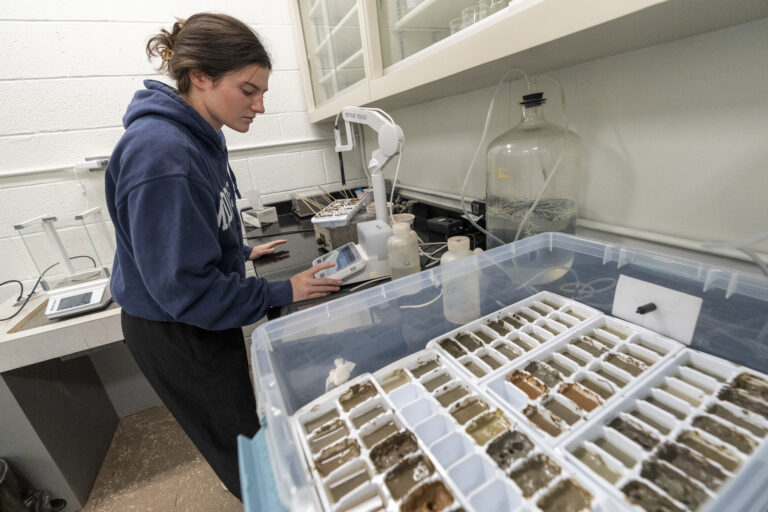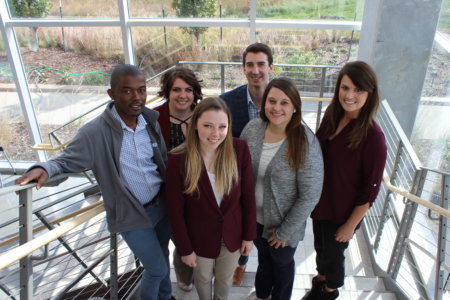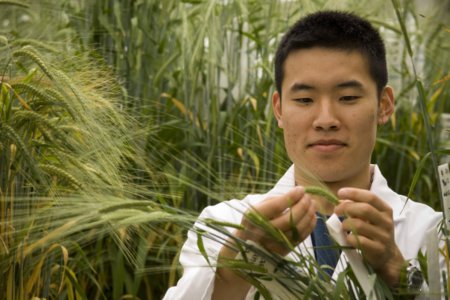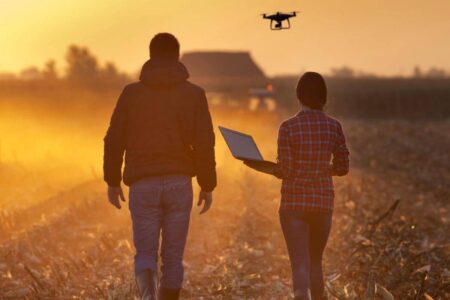
The soil and crop sciences industry is having a moment. Scientists are racing to stop the avian flu affecting California’s cows, extreme weather is causing prices of coffee beans to skyrocket, and a salmonella outbreak is happening because of American cucumbers. These are just three examples, with many more similar issues around the world that are related to either soil or crops – and they demand urgent and effective solutions.
If saving lives through soil and crop research is something that interests you, it’s time to get a master’s or PhD in this field. What awaits is a dynamic career with profound implications on how vast swaths of people live. Advance your knowledge in soil and crop sciences and make a difference with a graduate degree from one of the universities below:
Texas A&M University
Food security, ecological sustainability and climate change. Solutions to these critical issues are among the research projects currently underway within the Department of Soil and Crop Sciences at Texas A&M University.
Graduate students here follow in the footsteps of Dr. Norman Borlaug, the Father of the Green Revolution, and Dr. Larry Wilding, soil scientist and co-founder of Critical Zone Science, conducting research that may lead to the next big discovery. Now you can be one of these graduate students without the need to uproot your life or give up your employment.
Department of Soil and Crop Sciences faculty are devoted to training the next generation of scientists and leaders to solve global agricultural production and environmental issues through their 100% online MS and PhD graduate degrees in Plant Breeding, Agronomy (available fall 2025), Soil Science (available spring 2026), and Regulatory Science programmes. Students attend the same classes, with the same professors as those on campus.
With these online programmes, students participate in courses virtually. Thesis option master’s and PhD students must have access to research facilities and a PhD willing to supervise their research. For master’s students without access to research facilities, there is a non-thesis option which requires only the completion of online course work and a scholarly activity agreed upon with their Graduate Advisory Committee.
The department’s goal is to be more adaptable and responsive to the needs of today’s students through quality research based degrees that fit into your life. Online programmes have been proven to welcome a broader range of students, especially those with less flexible schedules but who still want to increase knowledge and advance their career. Whether you want to advance your career in research, teaching, extension, industry, or management of agronomic and environmental enterprises, the department is ready and well-equipped to make that happen.
Apply to the Department of Soil and Crop Sciences at Texas A&M University now.

The Department of Plant Sciences’ research extends beyond laboratory work. Source: Department of Plant Sciences, UC Davis/Facebook
University of California, Davis
University of California, Davis prides itself on being the #1 in plant sciences in the world. This is evident in its Department of Plant Sciences where you will address theoretical and technological frontiers in plant sciences through the department’s teaching, research, and outreach approach.
The department’s research extends beyond laboratory work as you conduct projects that also include field, forest, and rangeland, like working with the Agricultural Experiment Station, Cooperative Extension, and Smart Farm Big Idea. You will also have the opportunity to utilise the department’s research facilities such as the Plant Sciences Field Station, Wolfskill Experimental Orchard, and two field sites – one for vegetables, the other for fruits – situated around campus.
The department offers 10 graduate programmes with master’s and PhD degrees (except International Agricultural Development, which only has an MS). Soils and Biogeochemistry, for example, focus on the study of physical, chemical, and biological processes in diverse soils on various landforms and ecosystems. With areas of concentration like environmental chemistry to greenhouse gas emissions, you will graduate with the qualitative and quantitative skills necessary for professional research and teaching in soils and soil-plant relations, as well as the mineral nutrition of plants in the context of irrigated agriculture.

The MS in Global Plant Breeding is the only fully online programme offered by the Department of Plant, Soil and Microbial Sciences. Source: Plant, Soil, & Microbial Science Department at Michigan State University/Facebook
Michigan State University
The Department of Plant, Soil, and Microbial Sciences at Michigan State University is home to 100 graduate students, all seeking to understand the biology of plants and plant pathogens, as well as the roles soils, water, and the environment play in the promotion of a sustainable and economical agricultural ecosystem.
The department offers graduate degrees in Crop and Soil Sciences and Plant Pathology. However, it is its Global Plant Breeding, Master of Science that is the only fully online programme available here. No matter your career and life commitments, you can learn about new plant breeding tools and technologies from anywhere in the world. Classes are asynchronous, allowing greater flexibility to complete two to three credit courses, an independent study, and a final capstone course. Over 1.5 years, you will be looking at case studies using advanced plant breeding systems in real-time ensuring you stay updated with the latest technologies related to the field.
Although this programme is virtual, you will still gain hands-on experience by conducting your non-thesis capstone project at a local university, research institution, or private company. It’s an experience that allows you to apply knowledge gained in the programme to improve a crop of choice with a specific location and traits in mind. At the same time, you will also earn the design-thinking and leadership skills required to develop climate-resilient crops that can thrive in sustainable systems.
*Some of the institutions featured in this article are commercial partners of Study International










